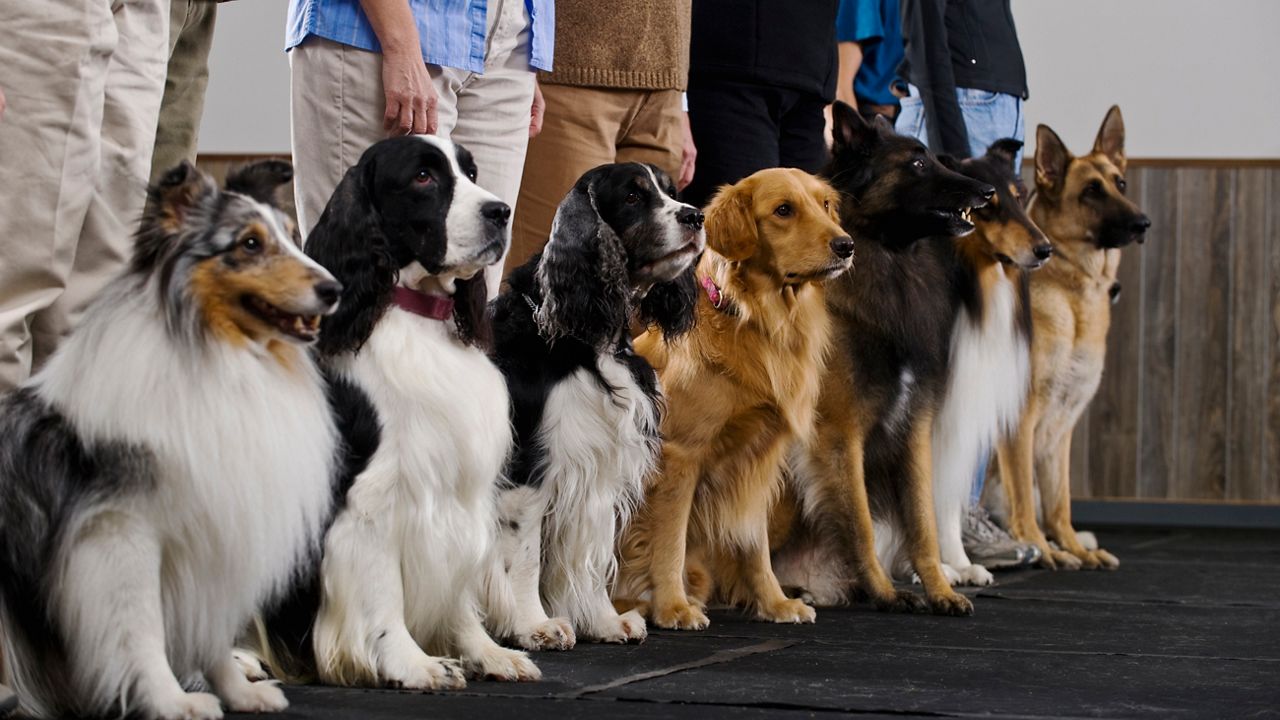TEXAS — Tucked into the agenda among several hot button issues for the upcoming special legislative session is a law that would punish dog owners who don’t give their pets adequate shelter.
The bill, known as the Safe Outdoor Dogs Act, would establish definitions for what constitutes adequate shelter and care for dogs left outdoors. In essence, it would make it illegal to leave a dog chained outside in the hot sun without food or water.
The inclusion of the bill in the Sept. 20 special session, the third such session called this year by Gov. Greg Abbott, stands out for a number of reasons.
First, Abbott vetoed the original bill, Senate Bill 474 when it arrived on his desk after passing in both chambers with bipartisan support.
Secondly, the dog leash bill will be discussed during another special session dominated by some of the most controversial issues heating up political discourse in the state, including the redrawing of the state’s new political maps and restrictions for transgender student athletes. The Legislature will also discuss how to allocate billions of dollars in federal COVID-19 relief funds.
So, why is Abbott putting dogs back on the agenda for the State Legislature?
In June, when Abbott vetoed the bill, he said in a statement that he did so because he felt the bill was an overstep into “micro-managing and over-criminalization” of how dog owners handle their pets.
While Texans love their dogs and there are state statutes already in the books to protect them by outlawing true animal cruelty, “Senate Bill 474 would compel every dog owner, on pain of criminal penalties, to monitor things like the tailoring of the dog’s collar, the time the dog spends in the bed of a truck, and the ratio of tether-to-dog length, as measured from the tip of the nose to the base of the tail,” Abbott said in his veto proclamation on June 21. “Texas is no place for this kind of micro-managing and over-criminalization.”
Abbott’s veto of the bill didn’t go over well in the eyes of many Texans, dog lovers or not. On Twitter and other social media platforms, the hashtag #AbbottHatesDogs trended soon after he released his statement announcing his veto.
So, too, did stories of animals rescued from being chained up outside and now living their best life, albeit one in which they found themselves disappointed in the Texas governor.
Indeed, Abbott’s veto came as a shock to many, especially since the bill had been backed by statewide law enforcement agencies, associations of veterinarians and animal control, and animal rights groups.
“We were flabbergasted,” said Stacy Sutton Kerby, the director of government relations at the Texas Human Legislation Network. The group had been working for several legislative sessions to get similar bills passed, including in the 87th Legislature, when it looked like it was finally going to make it into the state law books. Until Abbott’s veto, that is.
“We had no indication that there were problems with the policy,” Sutton Kerby said. “We’re glad to get into a conversation with the governor's office now to see how we can get this passed since so many stakeholders like us were so surprised and shocked.”
Texas has a law related to unlawful restraint of a dog that has been in health and safety codes since 2007. The problem with the current law is that it is written so vaguely that it's nearly impossible for animal control and law enforcement to enforce, Sutton Kerby said. The Safe Outdoor Dogs Act seeks to clarify the language in the existing law to actually make it enforceable, which is why so many law enforcement and animal control associations across the state-backed the bill in the regular session, she said.
“We know it's another two years until the next regular session so, we are really glad that the gov decide to put this on the agenda and give us another chance to get those over the finish line,” Sutton Kerby said.
The governor has not said why he’s put the bill back on the agenda, but since his veto opened up criticism from both sides of the aisle, he may have seen a political opportunity to revisit the issue in the next special session.
The governor has been steadily pushing the Texas Legislature for signing into law conservative priority bills this year as he faces a reelection campaign in 2022, including the most restrictive abortion law in the country, a partisan election reform bill, and laws addressing how public schools can teach about race and history.
But it appears that vetoing the dog leash bill caused many in his own party to scratch their heads. An estimated seven out of 10 Texas households own companion animals, mostly dogs, including the Texas governor.
With a population of nearly 30 million people in Texas, that’s a lot of dogs.
“Somebody must’ve barked,” wrote Ross Ramsey, the executive editor of the Texas Tribune in a column about Abbott’s decision to take up simililar legislation as SB474 in the next special session.
CORRECTION: A previous version of this story identified Stacy Sutton Kerby as Tracy Sutton Kerby. This has been corrected on all platforms.
